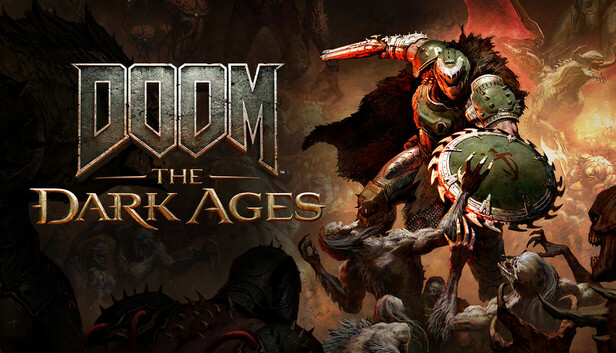Platform | PC, PlayStation 3, Xbox 360 |
|---|---|
Publisher | 2K Games |
Genre | Third-Person Shooter |
Release Date | 06/26/2012 |
Story
Spec Ops The Line is a narrative-driven third-person shooter that challenges players to confront the moral complexities and psychological tolls of war. Developed by Yager Development and published by 2K Games in 2012, the game is set in a post-apocalyptic Dubai, ravaged by cataclysmic sandstorms. The story follows Captain Martin Walker and his elite Delta Force team, tasked with locating Colonel John Konrad and his unit, the 33rd Infantry, who went missing after attempting to evacuate Dubai.
The narrative begins with Walker, accompanied by his squad mates Lugo and Adams, venturing into the city after receiving a distress signal from the 33rd. What starts as a straightforward reconnaissance mission quickly devolves into chaos as Walker uncovers the horrors perpetrated by Konrad’s unit. The story explores themes of heroism, insanity, and the fog of war, compelling players to question the nature of their actions and the thin line between right and wrong.
As Walker delves deeper into the city, he experiences disturbing hallucinations and moral dilemmas, reflecting his deteriorating mental state. The game’s multiple endings emphasize the consequences of the player’s choices, providing a sobering commentary on the cost of war and the psychological scars it leaves behind.
Gameplay
Spec Ops The Line distinguishes itself from other shooters through its focus on narrative and psychological depth. The game employs a third-person perspective, offering a blend of tactical combat and dynamic cover mechanics. Players must strategically navigate the treacherous terrain of Dubai, utilizing the environment to gain an advantage over enemies.
Combat in Spec Ops The Line is intense and visceral, with a variety of weapons and gadgets at the player’s disposal. The game encourages players to make tactical decisions, such as flanking enemies or using the environment to create diversions. Additionally, sand plays a crucial role in gameplay, with dynamic sandstorms and destructible environments affecting visibility and strategy.
One of the standout features of Spec Ops The Line is its moral choice system. Unlike traditional morality mechanics, the game presents players with difficult, often ambiguous decisions that impact the narrative and character relationships. These choices are designed to evoke emotional responses, forcing players to grapple with the consequences of their actions.
Graphics and Sound
Spec Ops The Line boasts impressive visuals, with the ruined cityscape of Dubai serving as a haunting backdrop for the game’s events. The developers expertly use lighting and environmental effects to create a sense of tension and urgency. The oppressive heat and swirling sands are almost palpable, immersing players in the harsh realities of the setting.
The character models and animations are well-crafted, conveying the physical and emotional toll of the journey on Walker and his squad. The game’s visual style is complemented by a gritty, realistic aesthetic that enhances the narrative’s impact.
Sound design plays a crucial role in Spec Ops The Line, with an atmospheric score and exceptional voice acting bringing the story to life. Nolan North’s portrayal of Captain Walker is particularly noteworthy, capturing the character’s descent into madness with raw emotion. The sound effects, from the crack of gunfire to the howling winds, further immerse players in the game’s unsettling atmosphere.
Legacy and Reception
Upon its release, Spec Ops The Line received critical acclaim for its bold storytelling and thought-provoking themes. While some critics noted its conventional gameplay mechanics, many praised the game for its narrative depth and willingness to tackle complex issues. It was lauded for subverting genre expectations, offering a mature and introspective take on military shooters.
Spec Ops The Line’s impact extends beyond its initial release, influencing discussions about the portrayal of war in video games. It has been cited as an example of how games can address serious topics and evoke emotional responses from players. Despite modest commercial performance, the game has garnered a cult following and is often regarded as a hidden gem in the gaming industry.
The game’s exploration of psychological trauma and moral ambiguity has left a lasting impression, inspiring developers to incorporate similar themes in their own projects. Spec Ops The Line is frequently referenced in discussions about video games as a medium for storytelling, highlighting its enduring influence on the industry.
Conclusion
Spec Ops The Line stands as a remarkable achievement in video game storytelling, offering a harrowing exploration of the human psyche in the context of war. Its gripping narrative, combined with engaging gameplay and atmospheric design, challenges players to confront the harsh realities of conflict and the moral dilemmas faced by soldiers. Although it may not have achieved blockbuster sales, its impact on the gaming landscape is undeniable.
The game continues to resonate with players and critics alike, serving as a poignant reminder of the power of video games to provoke thought and elicit emotional responses. Spec Ops The Line has cemented its legacy as a bold, uncompromising examination of the horrors of war, leaving an indelible mark on the industry and setting a high bar for narrative-driven games.















